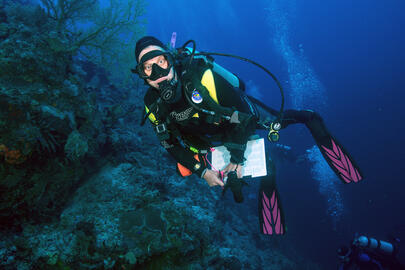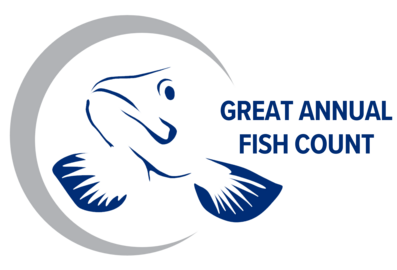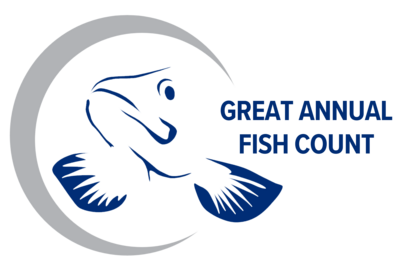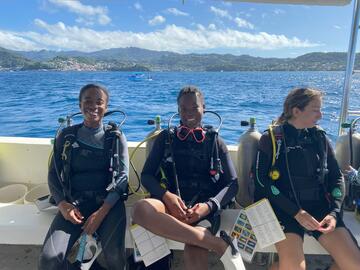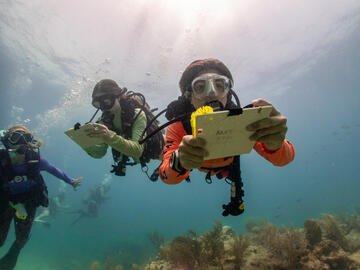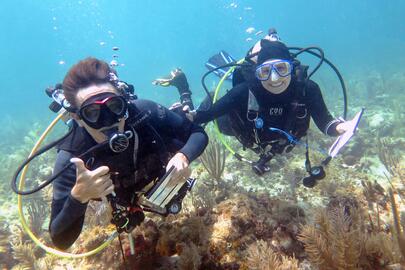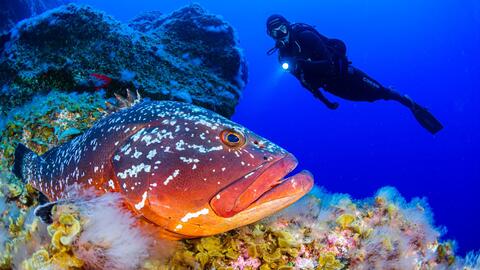The Scalloped Hammerhead shark (Sphyrna lewini), a critically endangered species with a decreasing global population, is characterised by its occurrence in large schools. Such schools are still observed today in the Pacific Ocean, but this is generally not the case in the Atlantic Ocean, and in the Cayman Islands not since the 1970s. The authors of this paper report a recent record of a school of S.
Welcome to Citizen Science Corner, our quarterly feature to celebrate those who recently reached a milestone in our Volunteer Fish Survey Project. Here are achievements from January, February and March, 2024.
Juvenile Hamlet Award
The Juvenile Hamlet Award is for individuals who have conducted 500+ REEF surveys. Congratulations to our latest Juvenile Hamlet Club member, Naomi Wooten! Read more about the Juvenile Hamlet award and others who have achieved it.
This Great Annual Fish Count, join REEF and Amoray Dive Center for a free fish ID class, followed by a REEF fish survey dive/snorkel.
The educator will join the participants on the afternoon boat to provide survey supplies, answer questions about surveying, and help identify fish that you see.
This class is great for beginners! Check out this two-minute video on REEF surveys.
This Great Annual Fish Count, join REEF and Pirate's Cove Watersports for a free fish ID class, followed by a REEF fish survey dive/snorkel.
The educator will join the participants on the afternoon boat to provide survey supplies, answer questions about surveying, and help identify fish that you see.
This class is great for beginners! Check out this two-minute video on REEF surveys.
Supported by a grant from the Society of Conservation Biology, REEF Ocean Explorers Education team member Madalyn Mussey recently traveled to the southeastern Caribbean island of Grenada to teach fish ID and REEF survey methods to college students. Known as the the Aqua Rangers, these Grenadian students protect their island resources and learn career skills to boost their blue economy.
In a new study published last week in the journal Conservation Letters, researchers from Scripps Institution of Oceanography, UC San Diego, and REEF demonstrate that fish population data collected by volunteer scuba divers and snorkelers (i.e. citizen scientists) provide a powerful and accurate tool to track species trends and biodiversity.
KEY LARGO, FLA. – In a new study published this week in journal Conservation Letters, researchers from Scripps Institution of Oceanography, UC San Diego, and Reef Environmental Education Foundation (REEF) demonstrate that fish taxonomy data collected by volunteer scuba divers (i.e. citizen scientists) provide a powerful and accurate tool to track species trends and biodiversity.
The state of biodiversity for most of the world is largely unknowable due to a lack of long-term population monitoring data. Citizen science programs could substantially contribute to resolving this data crisis, but there are noted concerns on whether methods can overcome the biases and imprecision inherent to these programs.
We have just released the 2025 REEF Field Survey Trips schedule, and we hope you will join us on a future trip! REEF Trips are led by marine life experts, and include diving, fish ID classes, and fun with friends. Divers, snorkelers, and families are welcome on REEF Trips. To find out more or book your space, email trips@REEF.org. We'll send you an invoice to submit a deposit to secure your space. For individual trip details and more info, please visit the links below.

